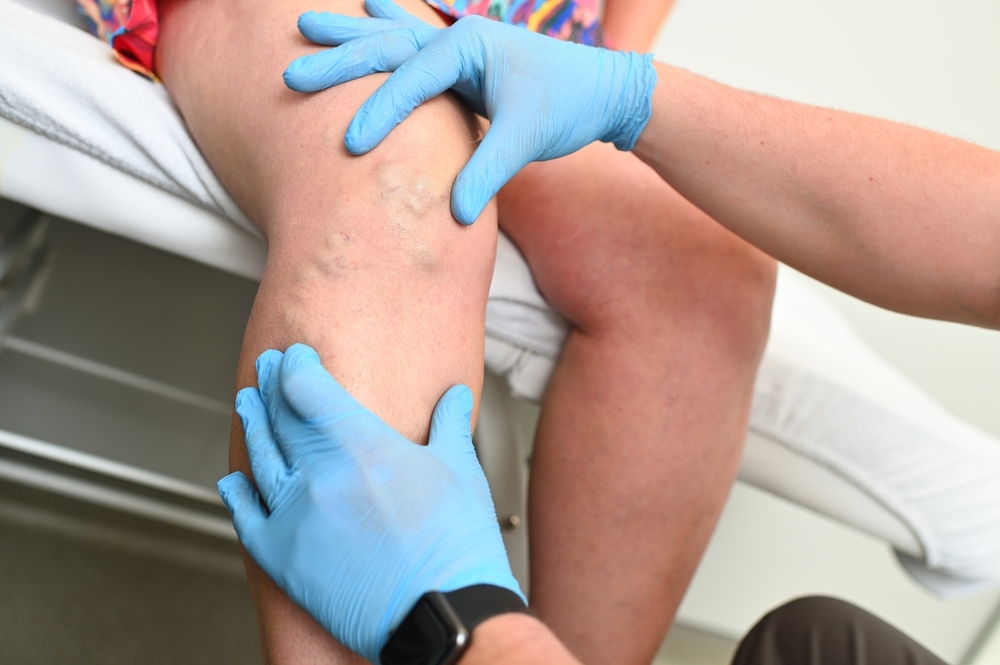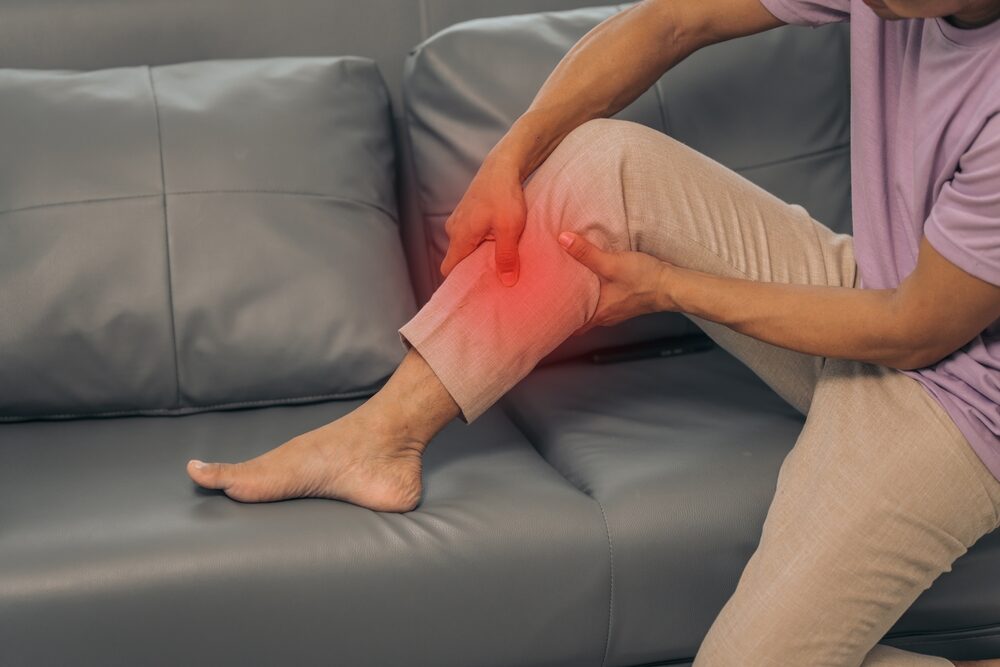
☝️ The most important facts in brief
- Phlebologists are vein specialists whose job is to recognise and treat vascular diseases.
- To become a phlebologist, you must first become a specialist and then complete 1.5 years of further training.
- Varicose veins and spider veins are among the most common problems for which a phlebologist is consulted.
- Phlebologists can earn between EUR 7,000 - 9,000 as salaried employees.
📖 Table of contents
A phlebologist specialises in the diagnosis and treatment of venous diseases. Among other things, they treat varicose veins, spider veins and phlebitis. Through targeted treatments, preventative measures and rehabilitation measures, the vein specialist helps to maintain the health of the blood vessels.
Are you interested in studying medicine?
We will be happy to advise you free of charge about your options for studying medicine, including advice on studying medicine in another EU country, which is fully recognised in Germany.
What is a phlebologist?
A phlebologist is a vein specialist. The job title is derived from the ancient Greek word "phleps", which translates as "blood vein" or "blood vessel". He has extensive knowledge of the venous system. Phlebologists play an important role in the prevention, treatment and rehabilitation of vein problems.
Problems with the veins and skin changes often occur in the legs in particular, which are a case for the phlebologist. They carry out targeted examinations in order to make an accurate diagnosis and treat the affected blood vessel in the best possible way.
What diseases does the speciality of phlebology cover?
Phlebology deals with a wide variety of venous diseases. In this article, we obviously cannot list all the diseases that fall within the scope of phlebology. We will therefore limit ourselves to the diseases that you as a doctor in phlebology will encounter in many cases.
Varicose veins
Varicose veins are caused by dilated veins that are often visible and swollen. They can cause pain and swelling in the legs. A phlebologist examines the veins and carries out appropriate treatment if necessary.
Spider veins
Spider veins are small, visible veins that appear bluish or red under the skin. They are usually harmless, but can be aesthetically disturbing. Phlebologists use various methods to remove spider veins.
phlebitis
Phlebitis, also known as inflammation of the veins, causes pain, redness and swelling. A phlebologist diagnoses the inflammation and starts the appropriate treatment.
Thromboses
Thromboses are blood clots in a vein. They block the blood flow and can cause serious complications and even death. It is therefore important that phlebologists can reliably recognise a thrombosis during an examination and immediately initiate countermeasures.
Venous valve insufficiency
If the venous valves do not function properly, this is known as venous valve insufficiency. The blood builds up, causing swelling and pain. Doctors specialising in venous diseases treat venous valve insufficiency in order to improve blood flow.

Is vein treatment always surgical?
No, treatment in vein medicine is not always surgical. Varicose veins and spider veins can often be removed without surgery. Before treatment, the specialist will carry out an examination. This can be carried out using ultrasound or Doppler sonography, for example. The examination determines how severe the venous disease is.
The vein specialist then decides which treatment method is most suitable based on individual findings and in consultation with the patient.
Depending on the condition, there are various procedures, such as compression stockings, sclerotherapy and laser. Surgical interventions are only carried out if they are appropriate. The aim is always to find the best solution for the patient's health.
How you can become a phlebologist
It's a long road to becoming a fully qualified phlebologist. However, if becoming a doctor is your dream job and you are interested in vascular diseases - especially venous diseases - and everything that goes with it, it is worth taking this path. It essentially consists of 3 sections:
1) Study of medicine
Studying medicine is the first step towards working as a phlebologist. In the first 4 semesters, you will complete the pre-clinical part of your studies. This covers basics such as anatomy, physiology and biochemistry.
This is followed by the clinical part, in which almost every speciality is covered. You will learn methods of diagnostics and therapy and complete internships in various specialisms.
After a practical year and the state examination, you can work as a doctor. The standard period of study is 6 years.
2) Specialist training
If you want to become a phlebologist, you must first complete specialist training in one of the following 4 areas:
- General medicine
- Dermatology
- Surgery
- Internal medicine
Training to become a medical specialist takes several years and is completed while you are working as a junior doctor in a clinic. At the end of this training, you will take the specialist examination. This opens the door to better-paid positions in the clinic and also gives you the opportunity to set up your own practice in your speciality.
3) Further training as a phlebologist
After you have completed your specialist training and gained at least 2 years of experience in a clinic, you can complete further training in phlebology. This takes one and a half years. You will then be a qualified phlebologist and can work in this highly sought-after speciality.
Career and salary: What does a phlebologist earn?
Phlebology, the study of diseases of the veins, is a specialised field in medicine. The decision to become a phlebologist should be carefully considered, as it involves considerable professional and financial investment. Here is an overview of the salary development on the path to becoming a phlebologist.
During medical school
As a rule, students studying medicine do not receive any remuneration. Tuition fees and living costs must be financed from their own resources or through part-time jobs. This financial burden can be considerable, as the tuition fees for a medical degree programme are high and studying takes up a lot of time, which limits the possibility of gainful employment.
During specialist training
After completing their medical studies, they undergo several years of specialist training to become a phlebologist. During this time, the future specialists work as assistant doctors in clinics. The average salary of an assistant doctor in Germany is between 4,500 and 5,500 euros gross per month, depending on the respective clinic and the collective labour agreement. The salary can increase further with increasing professional experience and additional qualifications.
As a trained specialist in phlebology
After successfully completing specialist training, the salary increases significantly. Employed phlebologists in clinics or group practices earn on average between 7,000 and 9,000 euros per month. The actual income may vary depending on the employer, professional experience and location. Some phlebologists also receive performance bonuses or other financial incentives.
Self-employment and own practice
Phlebologists who open their own practice have the opportunity to significantly increase their income. The income of self-employed phlebologists depends heavily on the number of patients and the efficiency of practice management. However, self-employment also entails risks, such as high initial investments, ongoing operating costs and the need to operate successfully.
Comparison and perspective
Compared to other medical specialities, phlebology offers attractive salary prospects. Salaries are in the upper range and the demand for specialised vein doctors is constantly growing, especially due to the ageing population. A career in phlebology can therefore be not only financially fulfilling, but also professionally fulfilling, as phlebologists play an important role in the treatment and prevention of venous disease.
Free information material
Studying medicine abroad 🎉
Order your info pack now, find out more about the Studying medicine abroad and get started as a medical student!





